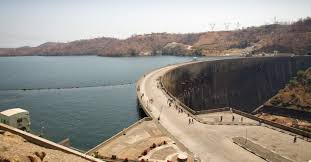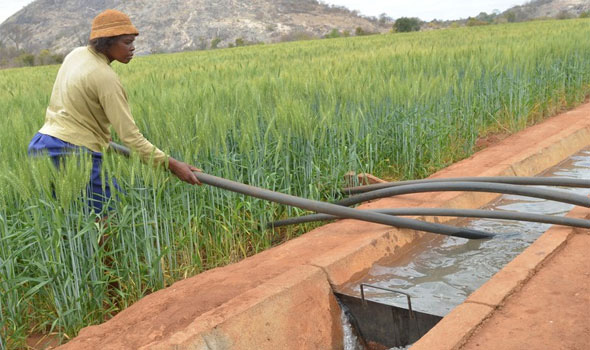Zesa ringfences 120MW for winter wheat
POWER utility, Zesa, says 120MW of electricity will be ringfenced to ensure uninterrupted power supply to wheat farmers this coming winter.
This comes as Zimbabwe is steadily increasing its power generation capacity spurred by the recovery of the Kariba Hydro-Power Station and the recent successful synchronisation of the Hwange Thermal Power Station unit 7 expansion.
As of yesterday, the country was producing a combined output of 1 205MW with Kariba at 800MW, Hwange 390MW and Harare Thermal 15MW.
Zimbabwe is targeting to put 85 000 hectares under wheat production this coming winter up from 80 000 hectares last year.
In 2021, a total of 66 434ha were under wheat and last year the hectarage was increased by 22 percent to 80 883ha.
Wheat production increased from 300 000 tonnes in 2021 to 375 000 tonnes in 2022 representing a 25 percent increase against a national annual requirement of 360 000 tonnes leaving a surplus of over 15 000t.
The production figures for last year were the highest since 1962 when wheat was first grown in Zimbabwe.
Green wheat
Zesa said it was alive to the importance of power supply towards wheat production hence the need to ensure farmers have adequate power to enable them to irrigate the crop and boost production inline with aspirations of the National Development Strategy and Vision 2030.
“The power utility is cognisant of its role and expectations in ensuring uninterrupted power supplies to wheat farmers in order to achieve wheat self-sufficiency and meet the Government’s target of 85 000 hectares for the year 2023,” said the power utility.
Zesa says it has put in place the requisite modalities to ringfence 120MW towards this national initiative.
Zimbabwe expects to further ease the power deficit when Hwange Unit 8 expansion combines with Unit 7 to feed power into the national grid.
These efforts to increase power generation are being complemented by increased investments in solar, gas and other renewable sources of energy.
In an effort to minimise hours of power outages due to network faults throughout the season, Zesa has established support groups for winter wheat farmers to enhance communication and enable the power utility to attend to faults in the shortest possible time.
Zesa has therefore urged wheat farmers to join these support groups through their cluster leadership.
Recently Cabinet noted that Zimbabwe alongside Ethiopia were the only African countries that are wheat self-sufficient.
Over the years, Zimbabwe has been a wheat importer as local production could not meet the annual requirement of 360 000 tonnes.
In the past wheat production was affected by several challenges that included interruption of power supply, high costs of production and unavailability of funding as most financial institutions were not willing to fund the crop due to high risks associated with the cereal.
Government through its Agriculture Recovery Plan is working to boost food security and nutrition in line with Vision 2030.-ebusinessweekly











